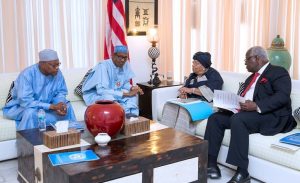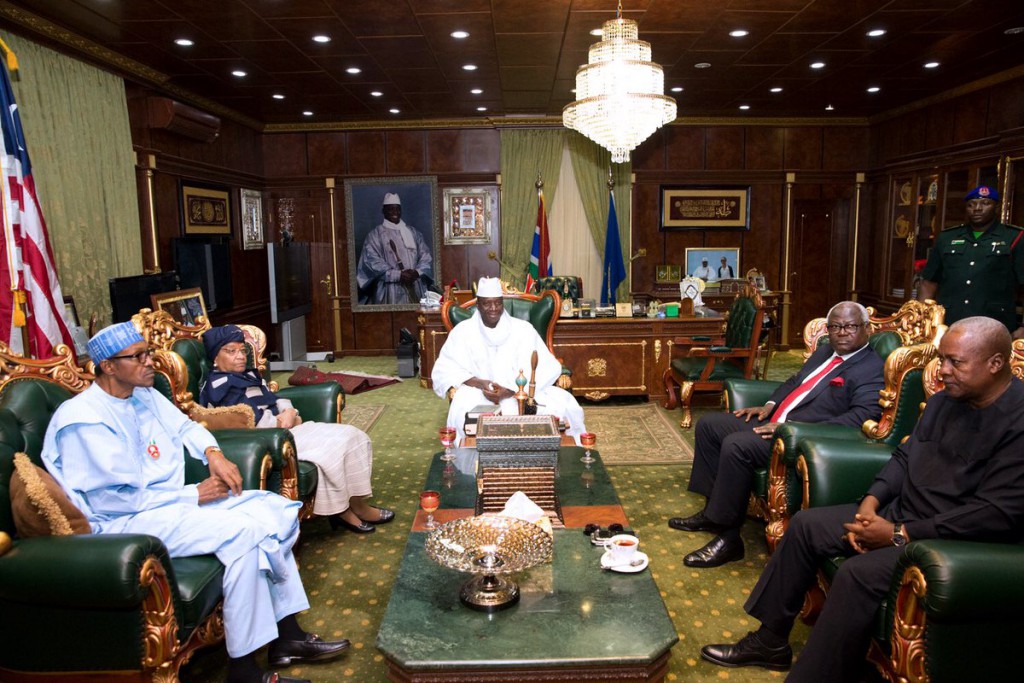Gambiaj.com – (BANJUL, The Gambia) – The upcoming Sahel Governance Forum, scheduled for July 30–31, 2025, in Banjul, will gather a distinguished cohort of former heads of state, diplomats, and thought leaders from across West Africa. In a region grappling with the resurgence of coups, disputed elections, and widespread disillusionment with democratic institutions, the presence of these elder statespersons is more than symbolic—it is a timely call for principled leadership rooted in wisdom and restraint.
This forum, and the pressing questions it raises about leadership and legitimacy, prompted me to reflect on the role of elders in African governance—past and present, particularly in The Gambia and the broader West African context.
This reflection builds on my earlier article, “From Diplomacy to Departure: Buhari, Mercenaries and the Barrow Evacuation”, which examined the 2016 political crisis that reshaped The Gambia’s democratic trajectory.
Tradition and Authority: Elders in West African History
In pre-colonial Africa, elders served as custodians of tradition, wisdom, and justice. In The Gambia, figures like alkalolu (village heads) and seyfolu (chiefs) were respected not for coercive power, but for their moral authority and sound judgment.
They resolved disputes, defended land rights, and maintained communal harmony. Across West Africa, councils of elders convened under the palaver tree long before constitutions and elections were introduced.
Their legitimacy was earned through life experience and years of service—not through political campaigns or electoral cycles.
Post-Independence: The Blending of Tradition and Modernity
After independence, leaders such as Sir Dawda Jawara, Léopold Sédar Senghor, and Kwame Nkrumah recognized the enduring value of elder wisdom.
Jawara’s government often consulted religious leaders, retired civil servants, and community elders—individuals who helped ground postcolonial governance in the values of patience, dialogue, and integrity.
However, with the rise of military coups and personalist rule in the 1990s, these traditional voices were increasingly marginalized in favor of authoritarian strongmen.
Jammeh, Wade, and Quiet Elder Diplomacy
One telling example was the diplomatic standoff between Presidents Yahya Jammeh of The Gambia and Abdoulaye Wade of Senegal in the early 2000s.
Tensions escalated over alleged Gambian support for MFDC separatists in Senegal’s Casamance region, border closures and retaliatory economic measures, and the breakdown of direct diplomatic relations between the two leaders.
During this period, elder diplomacy—often unofficial and behind the scenes—played a crucial role. Regional figures such as President Olusegun Obasanjo of Nigeria and President Blaise Compaoré of Burkina Faso intervened, urging moderation.
Domestically, traditional and religious elders encouraged de-escalation, drawing on the shared cultural and familial ties between the two nations. Though rarely recognized formally, these quiet interventions helped avert a deeper regional crisis.
The 2016 Crisis: Buhari’s Mediation and a Nation’s Turning Point
Perhaps the most prominent display of elder leadership came during The Gambia’s 2016 political crisis, when President Jammeh refused to concede defeat to Adama Barrow.

In response, ECOWAS launched a mediation effort led by then-President Muhammadu Buhari of Nigeria. He was joined by President John Dramani Mahama of Ghana (Co-Mediator), President Ellen Johnson Sirleaf of Liberia (then ECOWAS Chair), ECOWAS Commission President Marcel de Souza.
This team combined moral authority with strategic diplomacy—and the credible threat of military intervention via ECOMIG—to secure a peaceful transition.
Their efforts underscored the unmatched effectiveness of elder statesmanship in moments of high-stakes uncertainty.
My article “From Diplomacy to Departure” explored this pivotal moment, when elder wisdom helped steer The Gambia away from potential collapse.
The West African Elders Forum (WAEF): Institutionalizing Wisdom
In recognition of the value of such interventions, the West African Elders Forum (WAEF) was launched in 2021 under the leadership of former Nigerian President Goodluck Jonathan.
Supported by the Goodluck Jonathan Foundation, WAEF aims to mediate political crises, promote peaceful elections, and defend democratic norms across the region.
WAEF has since intervened in electoral processes and political transitions in Nigeria, Guinea, Sierra Leone, and Côte d’Ivoire.
Its notable members include: Goodluck Jonathan, Ernest Bai Koroma (former President of Sierra Leone), Fatoumata Tambajang (former Gambian Vice President), Ellen Johnson Sirleaf (former Liberian President and Nobel Laureate).
Sirleaf previously co-chaired the UNDP-organized Donors’ Conference for The Gambia’s Strategy for Poverty Alleviation alongside then-Finance Minister Bakary B. Dabo in Geneva, Switzerland—a conference I had the privilege of attending, where I presented the proposed Implementation Framework of the follow-up Poverty Alleviation Programme.
While Ernest Bai Koroma was still in office during the 2016 Gambian crisis and did not join the ECOWAS delegation, his role as an elder statesman has since grown through his involvement with WAEF.
The Gambia Today: In Need of Elder Voices
As The Gambia continues its journey of national healing and institutional reform, the wisdom of elders is more relevant than ever.
Key challenges remain: delayed implementation of transitional justice recommendations, rising land disputes and intercommunal tensions, increasing political disengagement among youth, and waning public trust in governance institutions.
At the grassroots level, elders still mediate disputes more effectively than courts. At the national level, respected retired civil servants, faith leaders, and public figures should re-emerge—not to seek office, but to offer guidance.
The Sahel Governance Forum: A Timely Reminder Between Memory and Possibility
This is what makes the upcoming Sahel Governance Forum in Banjul so significant. It brings together many of the same elder figures whose steady hands have helped guide West Africa through crises.
The forum’s discussions on social cohesion, youth inclusion, and institutional integrity will be stronger with their wisdom in the room.
In times of upheaval, societies often look to those who speak softly but carry the weight of experience.
Elders are not merely ceremonial. They are the moral compass of a nation, the bridge between generations, and the bearers of collective memory. As West Africa stands at another critical juncture, it is imperative to re-center their voices—not out of nostalgia, but out of necessity.
In The Gambia and beyond, the burden of wisdom remains unfinished work.











One Response
Great article.